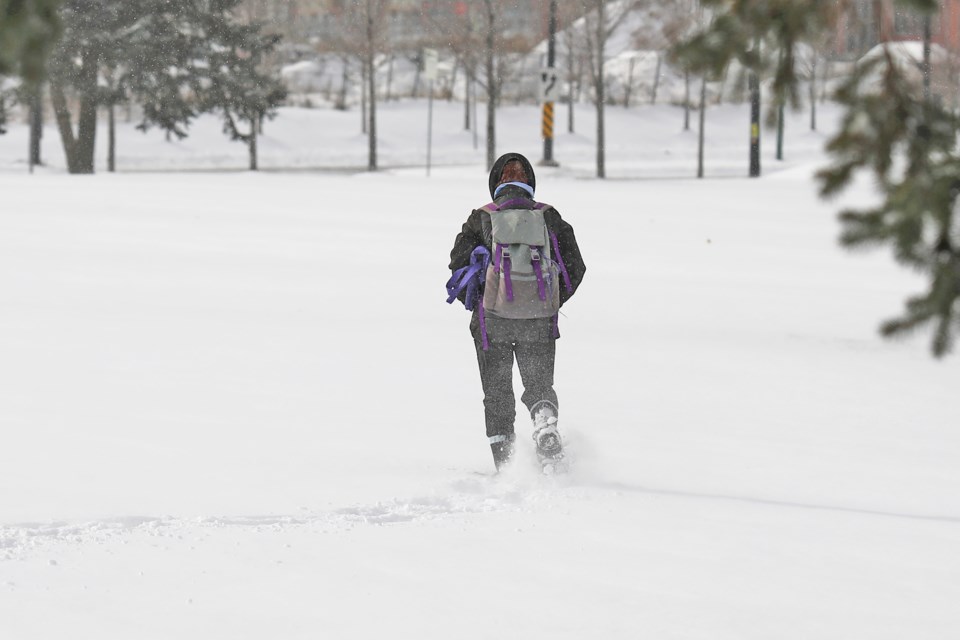Snow squalls could bring up to 20 to 35 cm of snow to the Sault Ste Marie area by Thursday, says an alert from Environment Canada.
Visibility will be reduced due to heavy snow combined with blowing snow.
Wind gusts up to 80 km/h are also possible Wednesday afternoon, ending Wednesday evening.
Snowfall is expected to begin Wednesday afternoon and end Thursday morning.
The full weather alert issued by Environment Canada follows below:
Snow squall watch in effect for:
- Agawa - Lake Superior Park
- Sault Ste. Marie - St. Joseph Island
- Searchmont - Montreal River Harbour - Batchawana Bay
Snow squalls are expected to develop. Under the snow squall bands, visibilities will be significantly reduced due to the heavy snow combined with blowing snow, and snow will quickly accumulate.
Snow squalls will begin Wednesday afternoon.
Hazards:
Local snowfall accumulations of 20 to 35 cm by Thursday morning.
Westerly winds gusting 70 to 80 km/h Wednesday afternoon into Wednesday evening resulting in extensive blowing snow and significantly reduced visibility.
Timing:
Wednesday afternoon through Thursday morning.
Discussion:
Snow squalls off Lake Superior will develop Wednesday afternoon and continue through Wednesday night. Gusty westerly winds will make for extensive blowing snow and near zero visibility at times. Dangerous travel conditions are expected along Highway 17. Strong winds will gradually diminish Wednesday night while snow squalls are expected to taper to flurries through Thursday morning.
Snow squalls cause weather conditions to vary considerably; changes from clear skies to heavy snow within just a few kilometres are common. Visibility may be significantly and suddenly reduced to near zero. Road closures are possible. Consider postponing non-essential travel until conditions improve.
Please continue to monitor alerts and forecasts issued by Environment Canada. To report severe weather, send an email to [email protected] or tweet reports using #ONStorm.
